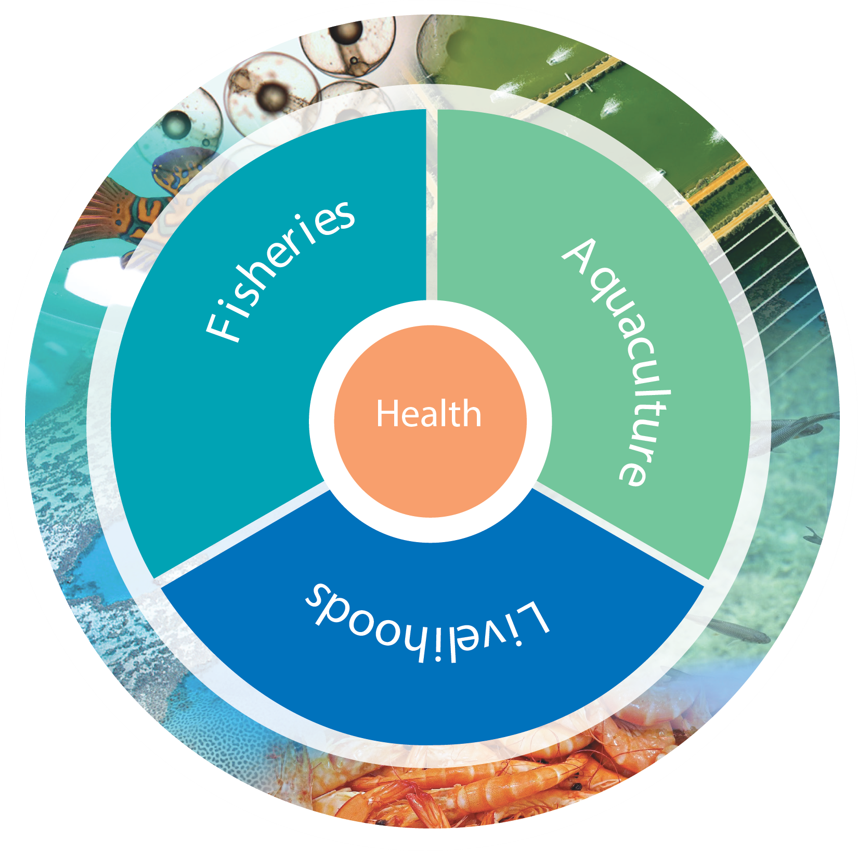CSTFA About the Centre
About the Centre for Sustainable Tropical Fisheries and Aquaculture
- Future Students
- JCU Global Experience
- International Students
- Open Day
- How to apply
- Pathways to university
- Virtual Open Day
- Living on Campus
- Courses
- Publications
- Scholarships
- Parents and Partners
- JCU Heroes Programs
- Aboriginal and Torres Strait Islander in Marine Science
- Elite Athletes
- Defence
- Current Students
- New students
- JCU Orientation
- LearnJCU
- Placements
- CEE
- Unicare Centre and Unicampus Kids
- Graduation
- Off-Campus Students
- JCU Job Ready
- Safety and Wellbeing
- JCU Prizes
- Professional Experience Placement
- Employability Edge
- Art of Academic Writing
- Art of Academic Editing
- Careers and Employability
- Student Equity and Wellbeing
- Career Ready Plan
- Careers at JCU
- Partners and Community
- JCU-CSIRO Partnership
- Alumni
- About JCU
- Reputation and Experience
- Chancellery
- Governance
- Celebrating 50 Years
- Academy
- Indigenous Engagement
- Education Division
- Graduate Research School
- Research and Teaching
- Research Division
- Research and Innovation Services
- CASE
- College of Business, Law and Governance
- College of Healthcare Sciences
- College of Medicine and Dentistry
- College of Science and Engineering
- CPHMVS
- Anthropological Laboratory for Tropical Audiovisual Research (ALTAR)
- Anton Breinl Research Centre
- Agriculture Technology and Adoption Centre (AgTAC)
- Advanced Analytical Centre
- AMHHEC
- Aquaculture Solutions
- AusAsian Mental Health Research Group
- ARCSTA
- Area 61
- Lions Marine Research Trust
- Australian Tropical Herbarium
- Australian Quantum & Classical Transport Physics Group
- Boating and Diving
- Clinical Psychedelic Research Lab
- Centre for Tropical Biosecurity
- Centre for Tropical Bioinformatics and Molecular Biology
- CITBA
- CMT
- Centre for Disaster Solutions
- CSTFA
- Cyclone Testing Station
- The Centre for Disaster Studies
- Daintree Rainforest Observatory
- Fletcherview
- JCU Eduquarium
- JCU Turtle Health Research
- Language and Culture Research Centre
- MARF
- Orpheus
- TESS
- JCU Ideas Lab
- TARL
- eResearch
- Indigenous Education and Research Centre
- Estate
- Work Health and Safety
- Staff
- Discover Nature at JCU
- Cyber Security Hub
- Association of Australian University Secretaries
- Services and Resources Division
- Environmental Research Complex [ERC]
- Foundation for Australian Literary Studies
- Gender Equity Action and Research
- Give to JCU
- Indigenous Legal Needs Project
- Inherent Requirements
- IsoTropics Geochemistry Lab
- IT Services
- JCU Webinars
- JCU Events
- JCU Motorsports
- JCU Sport
- Library
- Mabo Decision: 30 years on
- Marine Geophysics Laboratory
- Office of the Vice Chancellor and President
- Outstanding Alumni
- Pharmacy Full Scope
- Planning for your future
- Policy
- PAHL
- Queensland Research Centre for Peripheral Vascular Disease
- Rapid Assessment Unit
- RDIM
- Researcher Development Portal
- Roderick Centre for Australian Literature and Creative Writing
- Contextual Science for Tropical Coastal Ecosystems
- State of the Tropics
- Strategic Procurement
- Student profiles
- SWIRLnet
- TREAD
- TropEco for Staff and Students
- TQ Maths Hub
- TUDLab
- VAVS Home
- WHOCC for Vector-borne & NTDs
- Media
- Copyright and Terms of Use
- Australian Institute of Tropical Health & Medicine
- Pay review

The CSTFA supports the achievement of the UN Sustainable Development Goals related to food security, economic growth and wellbeing, and life on land and water and the equitable and sustainable expansion of the Blue Economy into tropical environments
Tropical regions of the world face unprecedented challenges due to population growth and an associated demand for high-quality seafood. This population expansion will continue to pressure wild fisheries resources and dictate ever higher efficiencies from aquaculture production.
The Centre for Sustainable Tropical Fisheries and Aquaculture (CSTFA) focuses not only on the aquatic and aquaculture systems that produce food, but also the industries and communities that utilize them.
Multidisciplinary collaborations between our researchers provide the synergies to address substantial research problems in a way that individual research groups cannot.
![]()
Priority Research Objectives:
- Resilient and sustainable aquaculture productivity

- An advanced reproductive and genetic toolbox to manage and maintain natural and domestic populations
- Enabling all consumers to have an increased choice of healthy seafood
- Diversification and enhancement of economic productivity in tropical aquaculture and fisheries
- Improved management of pollutants including nutrients and plastics in the aquatic environment and in food supply chains
- Support for the long-term sustainability, security, and environmental performance of commercial fisheries
- Understanding the biological and ecological components and processes that sustain marine ecosystems and the fisheries they support
- Closing the lifecycle of the most heavily fished ornamental species
- Improved management of aquaculture
- Creation of tools that allow us to quantify ecosystem and biodiversity values for application in animal and plant management and conservation
- Improved efficiency, sustainability and equity of current and emerging livelihoods and economic activities related to tropical fisheries and aquaculture
- Maximizing opportunities for individuals wishing to engage in, adopt and lead current and emerging economic development opportunities through targeted capacity building
Our Directors
Associate Professor Amy Diedrich
Theme: Livelihoods, Equity and Governance
+61 7 4781 4627
Amy is an environmental social scientist, focusing on understanding the interactions between people and marine environments. Specifically, she seeks to identify socio-economic and cultural factors that influence sustainable livelihoods.
Dr Mark Cyrus
Theme: Aquaculture and Animal Health
Dr Cyrus's research focus is largely on new species development (particularly low tropic species), and the incorporation of macroalgae to improve many aspects of aquaculture production including larval settlement, feed development, and the recycling …

In early 2018 the CSTFA was appointed an official Technology Resource Partner (Australia) for Asian Pacific Economic Co-operation - Policy Partnership on Food Security (APEC PPFS). APEC PPFS mandate is to strengthen and facilitate public-private cooperation to address food security issues in the Asia Pacific region.


